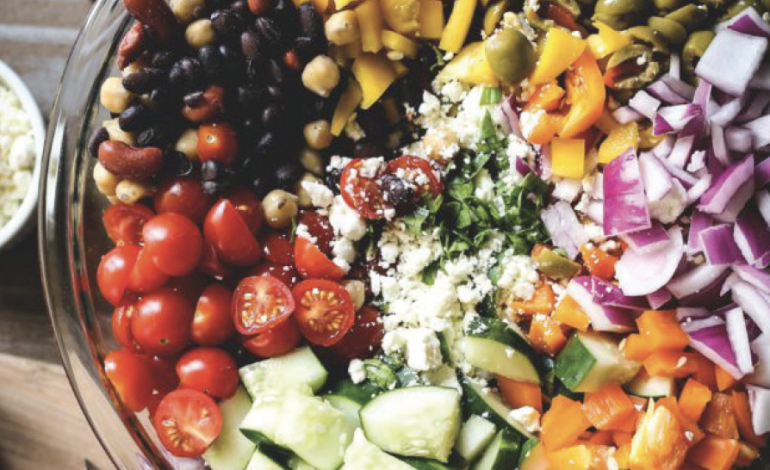Guide to a healthy diet
For a staggering number of individuals, New Year resolutions mostly entail losing weight and having a better diet. Instead of the sudden elimination of unhealthy foods from your platter, make

For a staggering number of individuals, New Year resolutions mostly entail losing weight and having a better diet. Instead of the sudden elimination of unhealthy foods from your platter, make these small changes for a healthier you.
Balance food portions: A balance of carbohydrates, proteins, vitamins, fats, fiber and minerals is essential for a healthy body. Balancing food portions entails selecting a variety of healthy options from each category. An example of a technique that measures out food portions is the plate method. Via this model, food can be portioned into; one quarter of carbohydrates, one quarter of protein, two quarters of assorted vegetables and one fruit. A good way to ensure that you balance food portions is focussing on non-processed food. Processed foods are nutrient deficient and often have more calories compared to non-processed food. Try preparing your own meals as you will be able to take charge of what goes into your plate.
Opt for whole carbohydrates: The main function of carbohydrates is to give your body energy. They can be found in rice, starchy vegetables like potatoes, nuts, bread and pasta among others. According to the U.S Department of Agriculture (USDA), the best carbohydrates take longer to break down into glucose. They should contain loads of fiber like whole grains. The ‘good’ carbohydrates should be able to provide the most nutrients with the least amount of calories. For a healthy diet approach, cut back on refined carbohydrates that have added sugar such as cookies and cakes that can cause a build-up of fat especially around the waistline. Instead, go for healthier alternatives such as whole grain bread, brown rice, nuts, seeds and low-fat dairy.
Enjoy lean proteins: To regulate body organs and tissues, go for fibrous proteins that are rich in keratin, elastic and collagen. Keratin makes up our hair, skin and nails. Collagen is the structural protein in your bones while elastin is a protein that helps the body return to its original state after contracting and stretching. To ensure that you get all the benefits needed, combine both animal and plant-based proteins. Lean proteins are a great source of body building foods. These foods include beans, peas, low-fat yoghurt, fish, skinless chicken, lean beef and eggs. The older we grow, the more proteins we should consume.
Consume healthy fats: While good fats such as omega-3 protect your heart and brain, bad fats such as saturated and trans fat increase the risk factor of heart diseases by increasing Low Density Lipoprotein (bad) cholesterol. Some of the healthy fats are monounsaturated, polyunsaturated, omega-3 and omega-6. Both monounsaturated and polyunsaturated fat can be found in plant based foods such as nuts, avocado and seeds. Ensure to get a good balance between omega-3 and omega-6 as they play key roles in regulating your immune system. Omega-3 can be found in seafood while omega-6 in corn oil. Saturated fat found from animal and plant sources are red meat, dairy and coconut oil. Trans fat is liquid unsaturated fat blasted with hydrogen to resemble saturated fat. Try varying your cooking oil for maximum benefits of good fats. An alternative to oils high in saturated fat is olive oil that provides a balance of monounsaturated and omega-6 fats.
Consume nutrient-dense foods: Consisting of vitamins and minerals, their importance to the body is undeniable. Vitamins are essential for immunity, blood clotting and energy production. Minerals play a huge role in bone health and growth and other important functions. Some of the micronutrients include calcium, iron, potassium and all vitamins. Calcium plays a huge role as the structural component of teeth, muscles and bones in the body. Iron has a component known as haemoglobin that carries oxygen in the blood and improves brain function. Vitamins from A to K aid organs and cells in the body. Add micronutrients to your diet by eating foods such as liver (rich in iron), banana (high in potassium), milk (high in calcium) and oranges (rich in Vitamin C).
Drink more water: Drinking water is essential in maintaining a healthy diet as water keeps the body hydrated without any added calories and is crucial for all body functions. Incorporate a consistent water intake routine to stay healthy and fresh. If you are struggling to drink water, jazz it up with a non-caloric flavour such as an orange wedge to help you stay hydrated all day.
This article was first published in the January 2020 issue of Parents.
READ OUR LATEST ARTICLE HERE:




